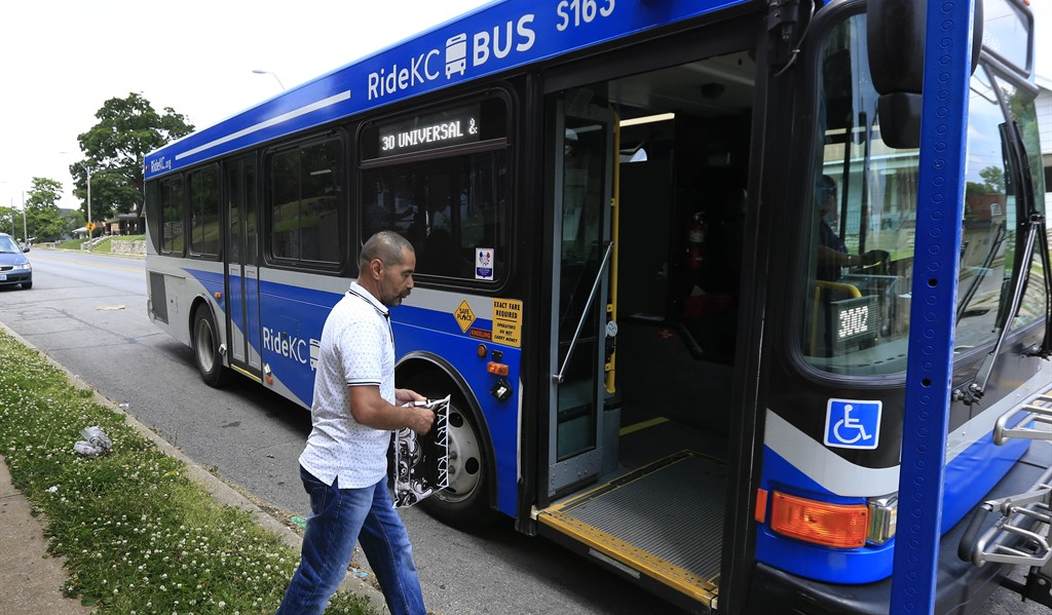As unbelievable as it may sound, the state of California is actually less prohibitive than the state of Missouri when it comes to the issue of concealed carry on public transportation. Sure, California lawmakers have banned the practice as part of SB 2, but that particular “gun-free zone” has been put on hold by a federal judge, so for the moment Californians with concealed carry permits can lawfully bear arms on the BART system in the Bay Area or Los Angeles’s Metro Rail.
That is not the case in Missouri, which still forbids firearms on public transportation, whether they’re lawfully owned or not. But for the second year in a row some lawmakers are hoping to repeal that particular “gun-free zone”, and HB 1708 will get its first test today before the House General Rules Committee.
The bill scraps the gun ban on public transportation, at least for those with valid concealed carry licenses, but it also contains several other improvements for gun owners. There’s one provision, however, that may end up causing heartburn on both sides of the aisle.
Currently, an applicant is not eligible for a concealed carry permit or a Missouri lifetime or extended concealed carry permit if the applicant has pled guilty to, entered a plea of nolo contendere, or been convicted of a crime punishable by imprisonment of a term exceeding one year or has pled guilty to or entered a plea of nolo contendere to one or more misdemeanor offenses involving crimes of violence within a five-year period immediately preceding application for the permit. This bill removes the ban on eligibility for a concealed carry permit or a Missouri lifetime or extended concealed carry permit if the applicant has pled guilty to or entered a plea of nolo contendere of such crimes.
The bill expands the list of persons exempted from certain prohibitions on the unlawful use of weapons as provided for in 571.030, RSMo, to now include certain retired judiciary members and current and former members of the General Assembly when in possession of a concealed carry permit.
The bill lowers the age requirement from at least 19 to 18 years of age or older for concealed carry permits.
The bill repeals the prohibition on the concealed carrying of firearms in churches and other places of worship by a person with a valid concealed carry permit.
I’m concerned that including the restoration of rights provision could scuttle HB 1708’s chances of passage, even with a roughly 2-1 Republican majority in the legislature. Conservative lawmakers may not want to look like they’re soft on crime by allowing convicted felons to apply for and receive concealed carry licenses and repealing the five-year ban for violent misdemeanants, while most Democrats aren’t going to vote for a bill that expands the right to carry in any way.
I would have preferred that particular part of HB 1708 be a standalone bill, even though there is some solid constitutional reasoning behind it. That’s going to be the most contentious part of the legislation, and I’d hate for it to be the reason for the overall bill to fail given the dramatic improvements it would bring to the state’s carry laws. Allowing lawful concealed carry on public transportation would enable many Missourians who depend on city buses or light rail to get around to carry on a regular basis, which isn’t the case now, and repealing the prohibition on concealed carry in houses of worship would be a huge benefit to those sanctuaries that can’t afford to hire armed security but have plenty of gun-owning parishioners who are ready to defend the faithful as they gather for worship.
Revamping the state’s prohibition on concealed carry licenses for those convicted of many crimes is worthy of discussion, especially with the Supreme Court taking up the issue of prohibited persons in the Rahimi case. I just think gun owners would be better off if lawmakers made who can carry and where lawful gun owners can carry two separate debates rather than tying them together in one single bill.








Join the conversation as a VIP Member